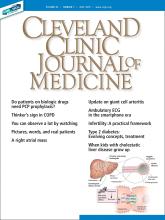Article Figures & Data
Tables
Beta-cell dysfunction and death, leading to decreased insulin secretion Insulin resistance in liver, leading to increased glucose production Insulin resistance in fat, leading to increased lipolysis Insulin resistance in muscle, leading to decreased uptake of glucose Brain phenomena, ie, increased appetite, increased sympathetic tone, decreased morning dopamine surge Increased SGLT2 effect, leading to increased glucose reabsorption Alpha-cell defect, leading to increased glucagon secretion Decreased incretin effect, leading to decreased insulin secretion in response to food Decreased amylin, leading to increased rate of glucose absorption Immune dysregulation and inflammation Abnormal colonic microbiome, leading to decreased GLP-1 secretion (speculative) Based on information in reference 3.
Drugs Incretin regulation Insulin resistance Kidney Brain Colon biome Stomach, small intestine Immune dysregulation, inflammation Beta cells Alpha cells Incretin defect Muscle Liver Adipose Metformin ✓ ✓ ✓ GLP-1 receptor agonists ✓ ✓ ✓ ✓ ✓ ✓ ✓ ✓ ✓ ✓ DPP-4 inhibitors ✓ ✓ ✓ ✓ SGLT2 inhibitors ✓ ✓ ✓ ✓ ✓ Thiazolidinediones ✓ ✓ ✓ ✓ Bromocriptine–QR ✓ ✓ ✓ ✓ Pramlintide ✓ ✓ ✓ Alpha glucosidase inhibitors ✓ DPP-4 = dipeptidyl peptidase 4; GLP-1 = glucagon-like peptide 1; SGLT2 = sodium-glucose cotransporter 2








